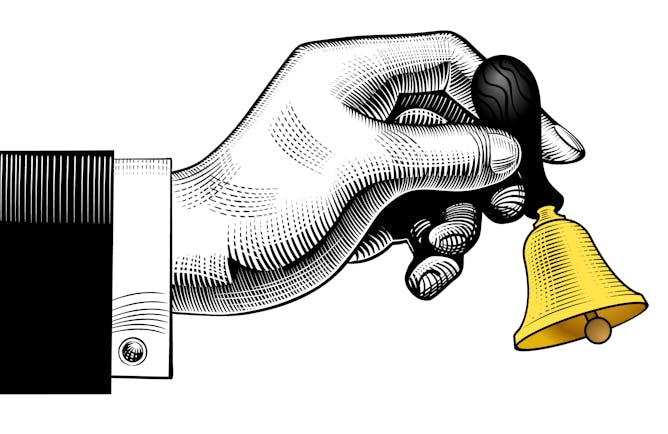Editor's note
|
|
After Robert Mugabe, Zimbabwe’s despotic president, was overthrown late Tuesday night, some commentators expressed cautious optimism that regime change might be good news for the country. Military historian Rut Diamint of Argentina – a country painfully acquainted with military rule – brings a distinct perspective to the question of whether a coup d’etat can help democratize a nation. Her answer: Don’t count on it. Latin America’s 20th-century military dictatorships were bloody national traumas. Even now, 40 years later, the
cultural legacy of totalitarianism continues to undermine democracy across the region.
Every so often you might hear a pundit asserting that some group or other is just like Pavlov’s dogs, unthinkingly responding to some event. Psychologist Edward Wasserman explains how, contrary to this negative characterization, the basic learning process first studied in Pavlov’s drooling dogs holds the key to understanding many of our most important emotional experiences.
Yesterday, the House approved a $1.5 trillion tax cut. The enormity of a number like that is tough for most of us to wrap our heads around. Andrew Hwang, a mathematics professor at College of the Holy Cross, shares his tricks for breaking down the massive numbers in the millions, billions and trillions that fill today’s news stories.
|
Catesby Holmes
Commissioning Editor
|

|
|
Top stories
|

The Army has promised a bloodless rebellion against President Robert Mugabe, but there’s good reason to doubt their claims.
AP Photo
Rut Diamint, Torcuato di Tella University
Some observers think Mugabe's overthrow by the Army might be a good thing for Zimbabwe. An Argentinean expert on Latin America's bloody military dictatorships disagrees.
|

When the ringing of a bell comes to mean something more.
Maisei Raman/Shutterstock.com
Edward Wasserman, University of Iowa
Pavlov’s drooling dogs hold the key to understanding many of our most important emotional experiences – as well as the overt actions we take to adapt to a world fraught with daunting challenges.
|

Breaking down the big numbers.
helen_g/Shutterstock.com
Andrew D. Hwang, College of the Holy Cross
Today's news can often involve mind-bogglingly large numbers. A math professor shares some tricks for understanding it all.
|
|
|
|
|
|
|
From our international editions
|
-
Jonti Horner, University of Southern Queensland; Jake Clark, University of Southern Queensland; Rob Wittenmyer, University of Southern Queensland; Stephen Kane, University of California, Riverside
A solitary planet in an eccentric orbit around an ancient star may help astronomers understand exactly how such planetary systems are formed.
-
Liz Allen, Australian National University
The same-sex marriage postal survey gave Australians a chance to create data for social change. And that's rare.
-
James Hamill, University of Leicester
The coup in Zimbabwe's means that Mugabe’s long and disastrous presidency is finally over. The questions that remain are the precise details and mechanics of the deal which secures his departure.
-
Lisa F. Carver, Queen's University, Ontario
Striking college faculty in Ontario vote today on the latest contract offer. Here one university professor describes her personal experience of underpaid and undervalued college teaching work.
|
|
|
|
| |
| |
|
|